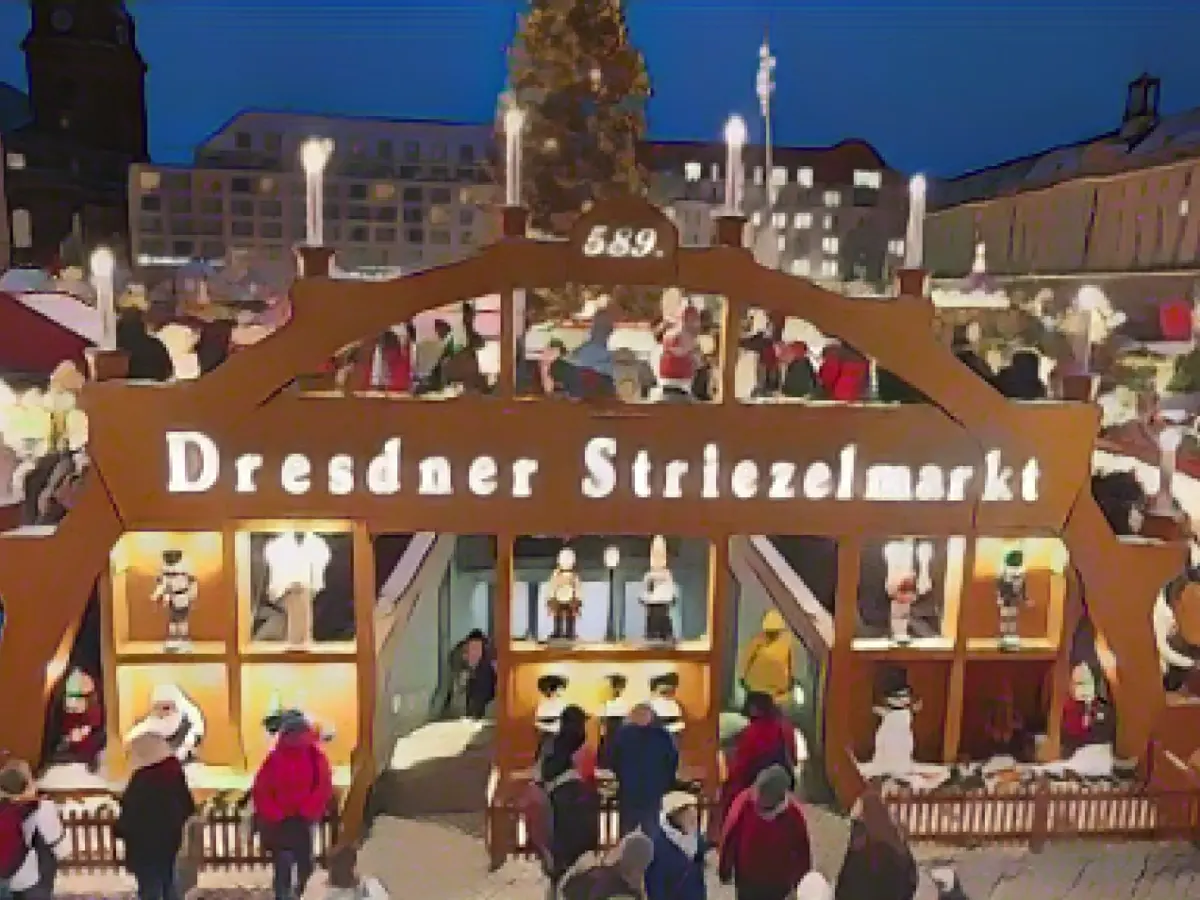Customs - Silent protest at some Christmas markets in Saxony
In protest against increased costs for music, some Christmas markets in Saxony fell silent on Monday. In addition to Leipzig, the operators of the Augustusmarkt, the Advent market on Neumarkt, the Romantic Christmas market on Taschenberg and the Canaletto market in Pirna (district of Saxon Switzerland-Eastern Ore Mountains) also took part in the nationwide "Day of Silence" in Dresden. The Dresden Striezelmarkt was to remain quiet from 10.00 to 14.00. There was neither background music nor a stage program with musical accompaniment, as it was said.
"We want to stay in contact with Gema and not be fobbed off across the board," said Leipzig market manager Walter Ebert, explaining the action. The fees have risen by up to 1000 percent overnight. The market office had reached an agreement with the Society for Musical Performing and Mechanical Reproduction Rights (Gema) for the 2022 Christmas market.
The fee claim now amounts to around 18,000 euros, around half of the original claim. Until the last Christmas market in 2019, the fee had been around 2,900 euros. According to Ebert, no claim has yet been made for this year.
The fees are now calculated according to the total event area, regardless of the actual area covered by sound, as the head of the Office of Economic Development, Steffen Rietzschel, said in a statement. "Stage programs with live music or sound from a tape recorder can no longer be financed in this way." In 2022, the fee amounted to around 10,000 euros, twice as much as in previous years.
As the administrator of the music rights, Gema defends itself against the accusations. The assessment basis has remained the same since 2011. "Some large, high-turnover markets have reported areas that are clearly too small," said Gema board member Georg Oeller. Gema had not checked the total area of the markets until 2022, but had relied on the conscientious and correct registration of the Christmas market operators in recent years.
According to Gema, it has sent around 3,350 invoices to Christmas market operators across Germany for 2022. In 167 cases, there were higher fees, in 35 cases even in the five-digit range.
Read also:
- Despite the silent protest at some Christmas markets in Leipzig, Neumarkt, Taschenberg, Canaletto, and Pirna in Saxony, the Dresden Striezelmarkt still planned to remain quiet for a few hours as part of the nationwide "Day of Silence."
- The rise in fees for music at these Christmas markets in Saxony, such as Leipzig, Saxon Switzerland, and Dresden, has become a significant issue, with the fees increasing up to 1000 percent overnight.
- The Municipalities of Pirna and other areas in Saxony joined the silent protest, hoping to negotiate a more reasonable agreement with the Musikmarkt-GmbH, the body responsible for collecting fees on behalf of the Society for Musical Performing and Mechanical Reproduction Rights (Gema).
- The Christmas markets in Saxony, including Leipzig's Neumarkt, have historically had modest music-related fees, but now the fees have significantly increased, impacting the budgets of these local events and their ability to provide live music for visitors.
- To address this issue, the Saxon Minister of Economics, Sabine von Schmiede, has hosted a roundtable discussion with representatives from the music and event industries, as well as municipalities, hoping to find a solution that balances the needs of both performers and event organizers.
Source: www.stern.de








